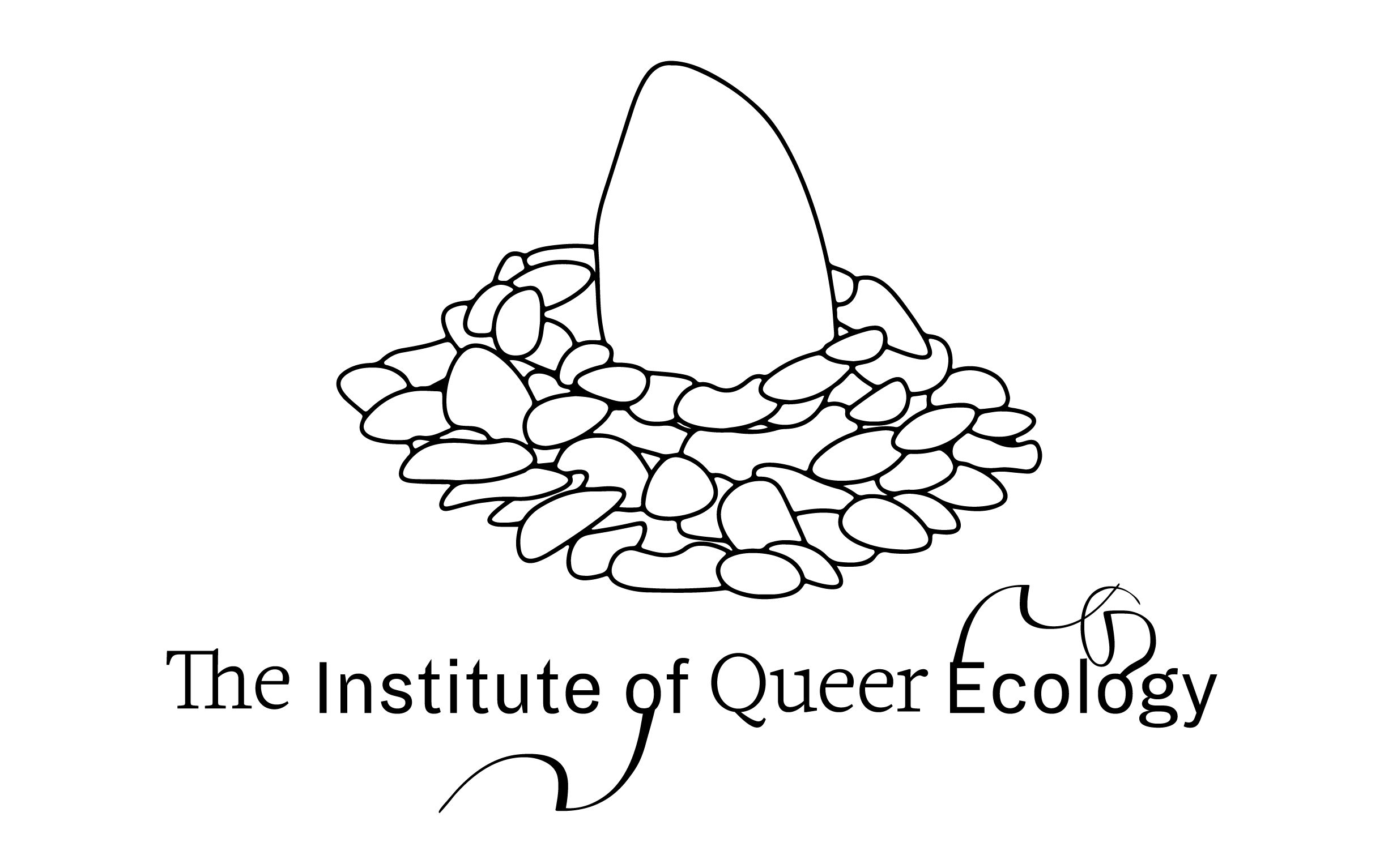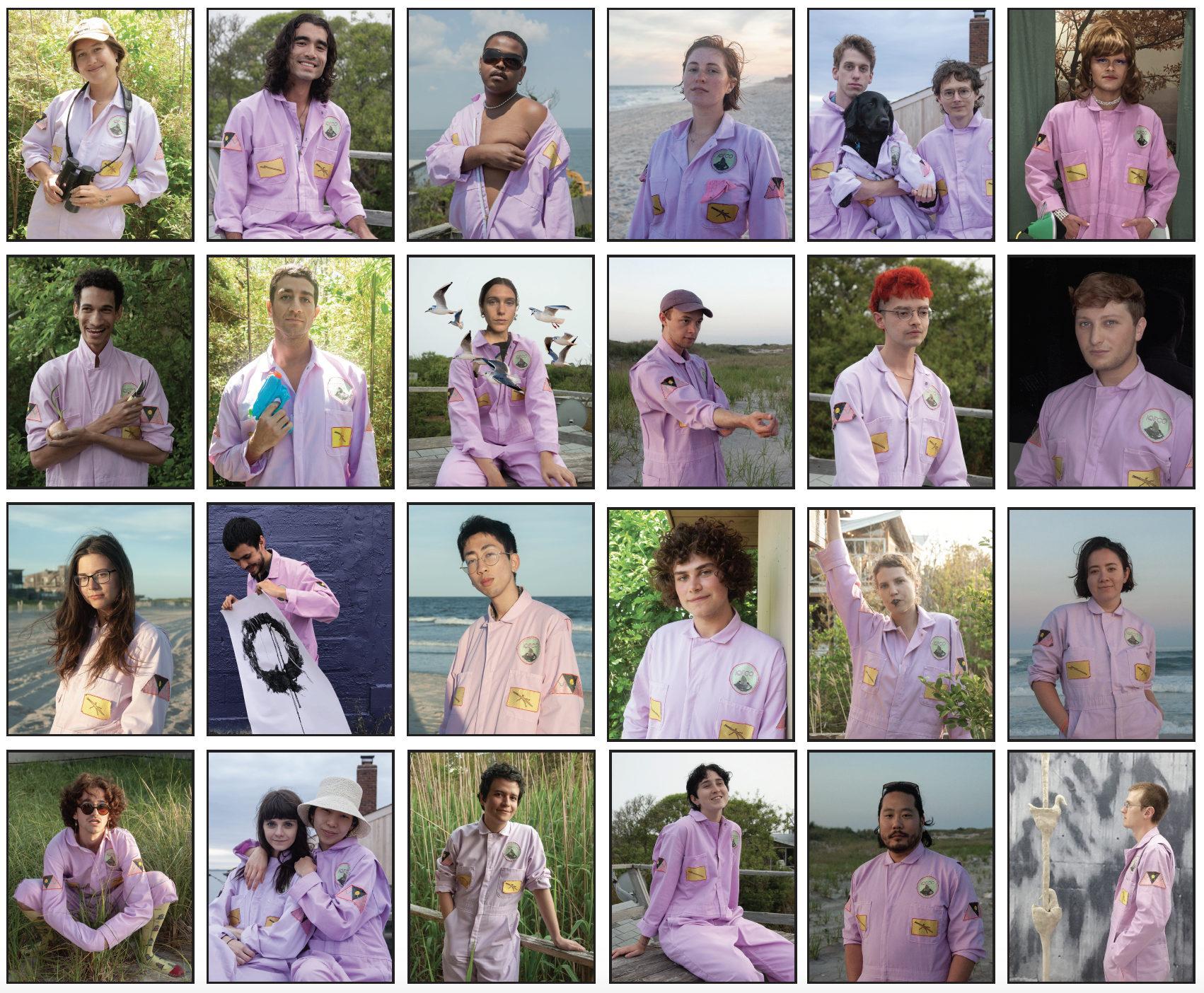
The Institute of Queer Ecology (IQECO) is an ever-evolving collaborative organism that seeks to bring peripheral solutions to environmental degradation to the forefront of public consciousness. IQECO projects are interdisciplinary, but unified and grounded in the theoretical framework of Queer Ecology, an adaptive practice concerned with interconnectivity, intimacy, and multispecies relationality. The collective works to overturn the destructive human-centric hierarchies by imagining an equitable, multispecies future.
The Institute of Queer Ecology was founded in 2017 by Lee Pivnik while he was studying at the Rhode Island School of Design. It is co-directed by Nicolas Baird, who joined the project shortly after its inception, and has continued to steer its growth and focus.
Lee is a Miami-based artist whose current work is focused on the history of the built environment in South Florida, and looks towards local organisms and living systems to identify regenerative solutions to continue living in a city marked by precarity.
Nicolas is an artist, evolutionary biologist, writer, and dancer from Oracle, Arizona, whose scientific research and art practice are concerned with the evolutionary relationships between bodies and their landscapes, coevolution, and multispecies adaptation.
To date, the Institute of Queer Ecology has worked with over 125 different artists to present interdisciplinary programming that oscillates between curating programs and directly producing artworks.
The idea of mimicry lies at the heart of the Institute of Queer Ecology’s vibrant identity—mimicry as an act of survival, manifested in the behavior of many species and distinctly connected to the history of queer communities. IQECO presents as an institute in a act of mimicry and infiltration, reintegrating queerness into scientific discourse and bringing artists to the table of environmental decision making.
IQECO is a project of futurism, demanding that we meet the climate crisis collectively with ideas that remake our relationships with nature. Queer communities are uniquely positioned to lead on climate adaptation through embodied strategies already inherent or familiar to queer experiences. On an individual level, queer lives are mutable: we understand change and transformation in intensely personal ways. On a collective level, queer community is mutualistic: it is symbiotic, in-contact, relational; it is a space of eccentric economies and mutual support, of found families and utopian dreams, of care and connection and the net benefits species gift one another. Through our artistic production, we aim to share this world of transformation and cooperation as strategies for environmental adaptation and ecological survival. IQECO has presented projects with the Guggenheim Museum (New York, NY), the Institute of Contemporary Art (Miami, Florida), the Julia Stoschek Collection (Düsseldorf, Germany), the Medellín Museum of Modern Art (Medellín, Colombia), the Museum of Contemporary Art Belgrade (Serbia), the Biennale of Sydney (Australia), Prairie (Chicago, IL), Bas Fisher Invitational (Miami, FL) Gas Gallery (Los Angeles, CA), and Vox Populi (Philadelphia, PA), among others.
Founded in 2017, the Institute of Queer Ecology is supported in part by a Knight Arts Challenge grant from the John S. and James L. Knight Foundation.

